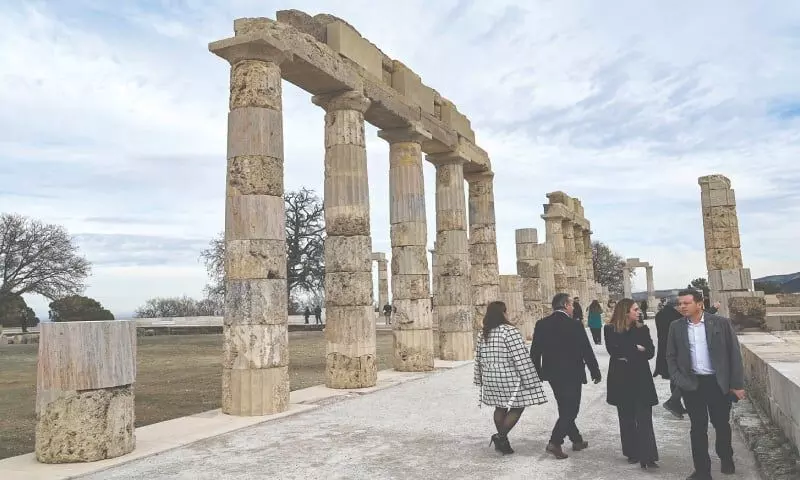
Greece reopens ancient palace, where Alexander the Great was crowned
text_fieldsAthens: An ancient palace in northern Greece which belonged to the ancient kingdom of Macedonia where Alexander the Great (356 B.C.-323 B.C.) was crowned king, will reopen to the public on Saturday after 16 years of restoration.
On Friday, Prime Minister Kyriakos Mitsotakis inaugurated the restored palace in the city of Vergina near the port city of Thessaloniki. At the ceremony, Mitsotakis called the Palace of Aigai a “monument of global importance”.
The site has been under restoration over the past 16 years. The palace, named after Philip II, father of Alexander the Great, is the centrepiece at the archaeological site of Aigai.
Mitsotakis expressed hope that the restored palace will draw more visitors to Aigai, which served as the capital of the ancient kingdom of Macedonia and was awarded the Unesco World Heritage Site status.
The archaeological site of Aigai was the largest building in classical Greece, covering nearly 15,000 square meters.
Alexander, who was crowned King of the Macedonians there in 336 B.C. following his father's assassination, would later go on to create an empire stretching into Asia and the Middle East.
The site includes the royal palace and a colonnade that surrounded the palace and the agora, where ancient Macedonians debated important matters. It was in the courtyard, with an 8,000 capacity, that Alexander was proclaimed king.
The palace was destroyed in the 2nd century B.C., after the definitive destruction of the kingdom by the Romans. Over the centuries, most of its building materials have been looted.
Excavations began in the 19th century to uncover the site and continued into the 20th century.
The 20.3-million-euro restoration project was funded by the European Union, according to Greek national news agency AMNA.
With agency inputs

























